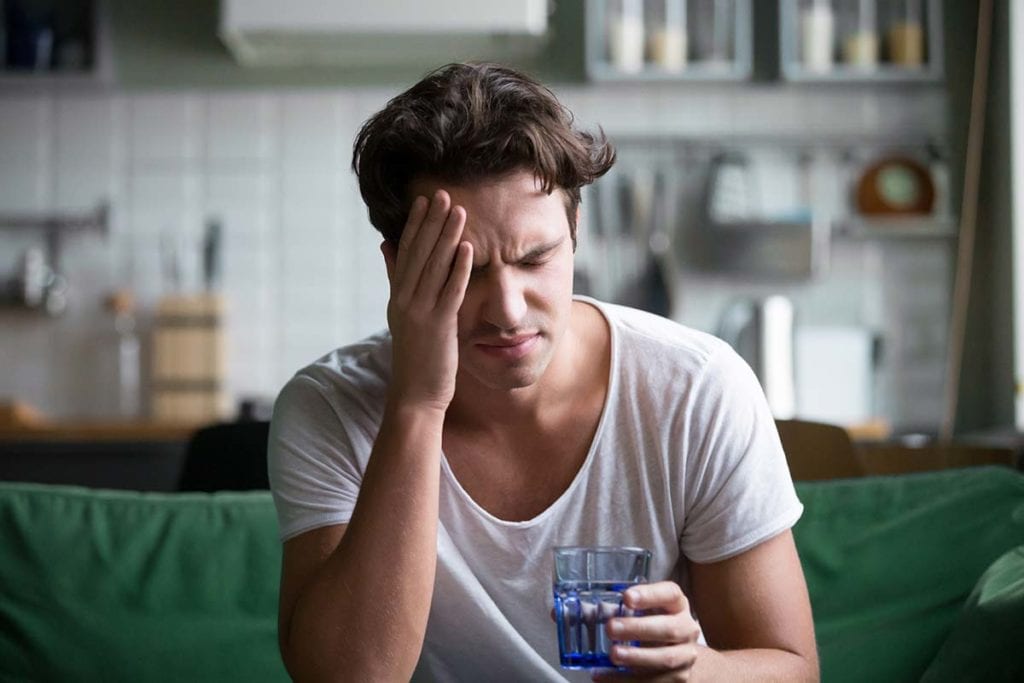Alcohol withdrawal occurs when you abuse alcohol regularly and suddenly stop. The severity and duration of alcohol withdrawal symptoms will depend on how heavily you were drinking before. Severe alcohol withdrawal symptoms can be life-threatening. If you are an alcoholic, a dialectical behavior therapy program can help you beat the bottle.
What Causes Alcohol Withdrawal?
Alcohol is a depressant, slowing down breathing and heart rate. When you drink regularly, your body begins to compensate by releasing more stimulant chemicals. Stimulant chemicals balance out the depressant symptoms of alcohol. However, when you stop drinking, it sends your body into overdrive. Your body still produces the same stimulants, but with no alcohol to balance them out.
The Timeframe of Alcohol Withdrawal Symptoms
Alcohol withdrawal symptoms usually occur about 8 hours after your last drink. However, if you drink extreme amounts of alcohol, it could happen in as little as 2 hours. If you have a more moderate problem, it may take 24-48 hours for symptoms to begin. Usually, your symptoms will peak within 24-72 hours. The first few days after quitting will be the hardest and the most dangerous. Withdrawal symptoms may last for a few weeks, but they should become less severe as time goes on. Psychological issues, including depression and anxiety, may remain after the physical symptoms have subsided.
Physical Signs of Alcohol Withdrawal
- Elevated blood pressure
- Clammy skin
- Insomnia
- Nausea and vomiting
- Headache
- Tremors
You may become physically sick when you stop drinking alcohol. The signs of alcohol withdrawal can include sweating, high blood pressure, headache, fever, and tremors. Insomnia may last for weeks or months after you stop drinking alcohol.
Psychological Alcohol Withdrawal Symptoms
- Nervousness
- Anxiety
- Depression
- Mood swings
- Nightmares
- Trouble concentrating
Without the depressant effects of alcohol, you may experience anxiety. Alcohol also releases endorphins in the brain, which are the brain’s feel-good chemicals. When you stop alcohol, you may experience depression, nervousness, mood swings, and have trouble concentrating.
Delirium Tremens
If you are a heavy alcohol user, you may experience delirium tremens, also known as DTs. 5% of people who experience DTs die as a result. The most common DT alcohol withdrawal symptoms are seizures, hallucinations, sudden changes in blood pressure, and tremors. You may also experience severe confusion, fever, agitation, and sensitivity to light, touch, or sounds.
Is Rehab Necessary?
Some people believe that they can overcome alcohol withdrawal symptoms alone. Others are afraid to stop drinking because they fear severe alcohol withdrawal symptoms. Alcohol withdrawal can be debilitating and even deadly without proper treatment. However, supervised treatment can significantly ease your discomfort and keep you safe.
How Do Doctors Treat Alcohol Withdrawal Symptoms?
Doctors prescribe benzodiazepines to counteract alcohol withdrawal symptoms. These are a type of depressant medication that calms the body’s nervous system. They can treat or prevent many of the signs of alcohol withdrawal, including seizures, tremors, and anxiety. Doctors may prescribe beta-blockers and anti-seizure medications to prevent high blood pressure and seizures, as well. In addition to needed medical care, a rehab facility can help you overcome your alcohol use. Rehab may include the 12-step program, 12-step alternatives, psychotherapy, and group therapy.
Go Sober With The Ranch PA
The Ranch PA can help you overcome your addiction to alcohol. We offer many programs, including medical detox, which can ease the symptoms of alcohol withdrawal. If you or someone you love is battling addiction, contact us at 717.969.9126. Take your first step towards sobriety today.

